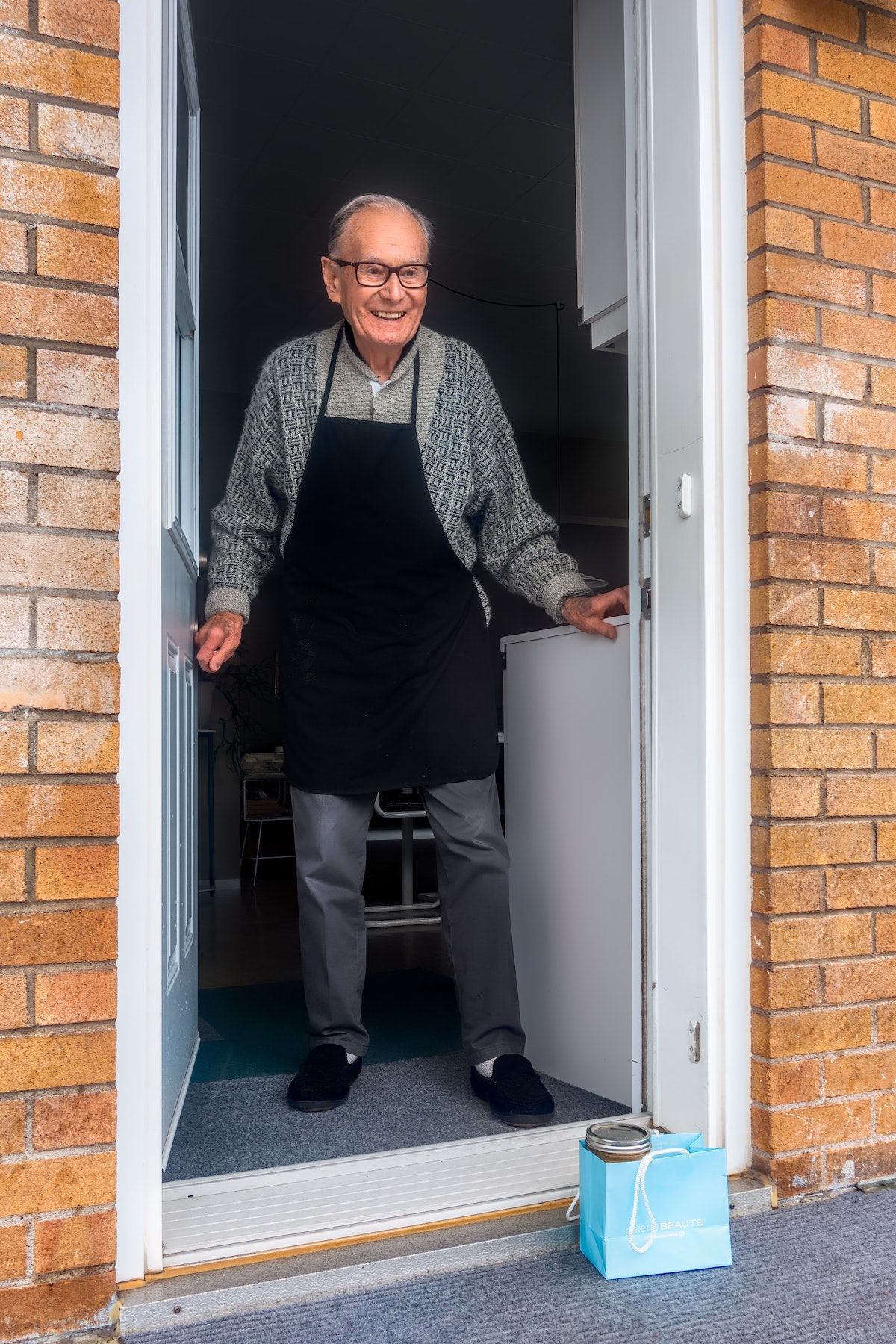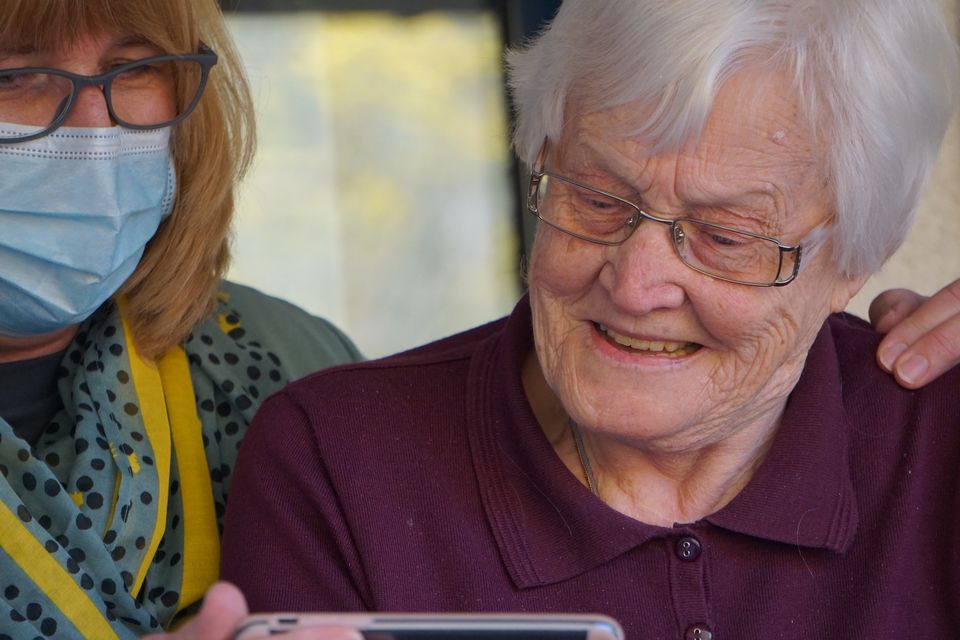Caring for parents from afar: Coping with remote caregiver guilt

While there is a lot to be said for spending time with your parents and providing them with your support by being physically present for them, your employment or other commitments may prevent you from spending as much time with them as you'd really like.
If your parents are ageing and unable to do as much as they once did, this can be a cause for concern with regards to their well-being and safety. However there are some things you can do to take care of your ageing parents from afar and we hope our advice below helps you.
-
Technology driven communication
Technology is making is easier and easier for all of us to stay in touch with our loved ones these days, from wherever we might be in the world.In fact, internet usage for the over 75s has more than doubled from 20 to 40% in the last ten years and it is still rising quickly.
To stay connected with your parents, call them on a regular basis. Hearing your voice, even for just a few minutes, as often as you can in the week, can make a welcome change for them and brighten your parent's day.
If they are not already doing so, teach your parent how to answer - and eventually make - video calls. If they are not tech-savvy, you could find an app with a larger than usual and easy-to-use interface. You can guide them on how to use it. A close friend or neighbour might also be able to help them out, if you pre-agree your first few calls. Schedule calls around their routine, and at times that are convenient for both of you - when you both can engage and communicate with each other, for short or long durations.
The other thing that will help your parent is learning how to text. This can be a quick and easy way for them to get in touch with you, especially if you are busy. If they don't already use it, teach them how to. Remember to be patient and kind, as they once were with you when you were learning from them. As long as they want to learn, you can invariably help them to do so. And, if possible, always try and immediately acknowledge their texts when they reach out to you. Even if you can't give them the answer they need right away, just tell them you have their text and tell them when you might be able to respond. This provides a lot of reassurance, as your parent will feel heard.
You can get phones with all sort of features, that anyone elderly might find particularly helpful in their everyday life. There are phones with big screens, big butttons, those that are lightweight and those with a longer-than-usual battery life. Some can be easier to use, more durable or have particlarly strong reception built in and of course there are those that are just more fairly priced overall. Have a search on the internet to find the most suitable option for your parent. -
Hire an At-Home Carer
Of course, you parent might have more complex needs, perhaps because they require Alzheimer's support or dementia care at home. If this is the case they may need more help with their daily routine and for this you might need to consider hiring an at-home carer.
While you cannot be there yourself, and the additional pair of hands to help at home might be necessary, hopefully they will be welcomed by your parent.
Care at home is a common choice, when admitting your parent into a care home is not essential, because it allows your parent to live independently in the comfort of their own home. A personal care assistant or PA can help your parent to carry out their daily tasks and sites like UKCIL can help you with meeting a new local carer, quickly and affordably. -
Plan Visits
While connecting via calls is a great option, nothing can beat a personal visit when you're able to do so.
You should coordinate your visit with your parent and their primary caregiver, in advance of going. You could base your visits for when the caregiver is looking to get away to do something, or when they need a break. Joining your parents in simple activities that they like, or for a meal, will be a good way to spend time with them and to relax with them.
If you can't make it for a while, do something traditional and send them a letter via the post, or a little gift (even a little chocolate or sweet) - just to show you are thinking of them. There are so many little ways to be thoughtful that will be hugely valued by your parents. -
Make an Emergency Plan
It is necessary to have a pre-agreed, concrete plan in place for your parents and yourself, just in case of an emergency.
Think about things like who your parents should call in the first instance - not only does it need to be someone trusted, it might need to be someone who is living locally to them, as they may need to reach your parent in a hurry. This person should understand your parent's medical condition, and any problems they have. Your parent, and if applicable their primary caregiver, should really have a list of emergency numbers they can call should the need arise.
Secondly, leaving your parent and their caregiver, where appropriate, with emergency funds might also be necessary, so leave a just-in-case fund in advance of any emergency arising, for a rainy day that might require it. This might just be money for a taxi to their GP or the hospital if needed, or it may cover other eventualities that are specific to the needs of your parent.
Thirdly, think about what else they might need due to their physical or medical condition. For instance if they are a dementia or Alzheimer's sufferer, you can get them a customisable medical identify bracelet which details their name, condition and emergency contacts.Finally, it's worth considering getting your parent a personal alarm, which can call for someone if the person wearing them has a fall or problem at home. Worn around the neck as a pendant or around the wrist as a bracelet, they are triggered if someone has a fall or fit. There are other home security options and tracking devices, and it is worth researching these when looking after your parent from afar. -
A good local support network
If you are living far away from your parents yourself, a local network that is available for your parent - maybe consisting of people like their doctor, their carer, a good friend or neighbour - are very valuable and important people. They can assist your parents during emergencies, until you can get there, so whenever you come to visit, make sure you meet them and are familiar with them.
Remember to keep the contact numbers of these important people handy (for you, and your parent) and remember that you might have to periodically check that the details you have are up-to-date.
As well as keeping in regular contact, show your appreciation to this support network - whether that's by sending them a thank you note now and then, by offering them a cuppa next time you see them, or simply by listening to them when they see you and want to talk.
As you can see, just because you live at some distance, it does not mean that you cannot do anything to help your parents out. Try not to feel guilty. Instead, put in place some practical steps to ensure you are doing your part to support your parent(s) from afar, letting your parent(s) feel your support and love in that way.




